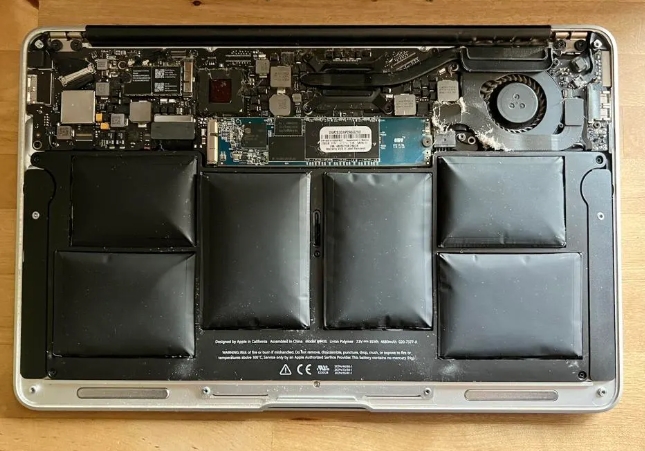Laptop batteries are an essential part of our daily tech usage. Not only do they power our devices, but their safety directly impacts our experience. Unfortunately, many users tend to overlook the importance of battery safety until an issue arises. This article will dive deep into laptop battery safety, helping you identify potential risks, take preventive measures, and ensure secure usage.
Why Do Laptop Batteries Explode?
While battery explosions sound alarming, they rarely happen without warning. In most cases, these explosions are caused by overheating. Specifically, lithium-ion batteries, which are commonly used in laptops, are sensitive to temperature changes. When internal temperatures rise beyond the safe threshold, dangerous situations can occur. Here are some common causes of battery explosions:
High Storage Temperature
Storing your laptop or its battery in an environment exceeding 60°C can severely impact its performance and lead to explosions. Studies show that high temperatures can degrade battery materials, making them more prone to failure.


Manufacturing Defects
In some cases, poor quality control during production can result in defective batteries. Defects such as internal short circuits or the use of subpar materials significantly increase the risk of explosion.
Overcharging
Overcharging is another common issue. When a battery is left connected to the charger for extended periods, it can overheat, leading to potential safety hazards. This is why manufacturers recommend unplugging the device once it is fully charged.
Tampering or Improper Use
Using non-compliant chargers or tampering with the battery can also lead to dangerous consequences. Unauthorized modifications often compromise safety mechanisms built into the battery.
Common Warning Signs of a Battery Explosion
Exploding batteries often give off several warning signs before the actual incident occurs. If you notice any of the following issues, it’s time to take action:
Overheating
If your laptop becomes excessively hot during use, especially to the point of discomfort, this could indicate a problem with its cooling system. Overheating is one of the leading causes of battery failure.
Charging Issues
If your laptop battery takes too long to charge or doesn’t charge at all, this could be a sign that it’s reaching the end of its lifespan. Slow charging or no charging is often a precursor to more serious battery issues.
Unusual Smells or Smoke
If you detect a burning smell or see smoke coming from your laptop, immediately disconnect it from power and seek professional help. These signs indicate an imminent battery failure or explosion.
How to Prevent Laptop Battery Explosions
Although battery explosions are rare, taking the following precautions can significantly reduce the risks:
Ensure Proper Ventilation
Avoid using your laptop on soft surfaces like beds or couches, as these block ventilation and increase the risk of overheating. Using a cooling pad can help maintain optimal temperature levels for your device.
Regularly Clean Dust
Dust buildup inside your laptop can clog the fans and reduce cooling efficiency. Regular cleaning helps prevent this, ensuring your device stays cool and safe.
Avoid Overcharging
Leaving your laptop connected to the charger for prolonged periods can cause the battery to overheat. Once fully charged, it’s best to unplug the charger to minimize risk.
Keep Your Laptop Away From Extreme Heat
Never expose your laptop to high-temperature environments, such as leaving it in a hot car. Prolonged exposure to heat accelerates battery degradation and increases the risk of explosion.
Regular Battery Inspections
Periodically check your battery for signs of swelling, leaking, or other irregularities. If you detect any issues, replace the battery immediately to prevent dangerous situations.
What to Do If a Battery Explosion Occurs?
In the unfortunate event of a laptop battery explosion, it’s crucial to know how to respond. If the explosion happens in a workplace, your employer is responsible for providing a safe environment. You may be entitled to compensation under applicable laws.
For instance, specialized law firms, such as Levin Simes, have extensive experience handling personal injury cases related to lithium battery explosions. They can help you determine liability and assist in securing compensation for medical expenses, lost wages, and other damages.
Conclusion
While laptop battery explosions are uncommon, the risks associated with them are not negligible. By understanding the potential dangers and following proper preventive measures, you can significantly reduce the chance of accidents. Monitoring your device’s heat levels, avoiding overcharging, and conducting regular inspections are simple yet effective ways to protect yourself.
In my opinion, these preventive measures not only help prolong the life of your laptop but also safeguard you from potential harm. Have you experienced any battery issues or do you have additional safety tips? Feel free to share your thoughts and let’s discuss how to make our tech devices safer for everyone.


